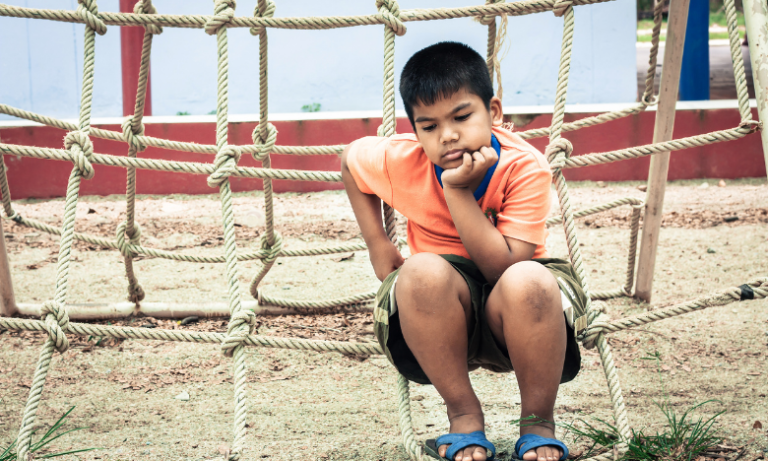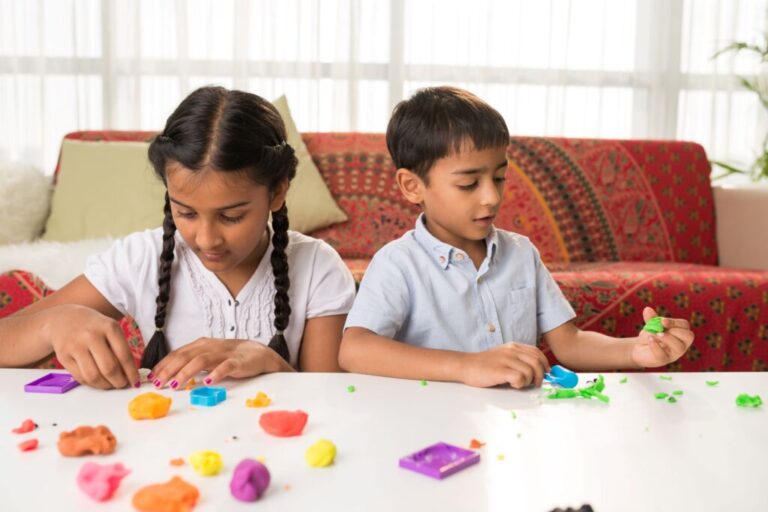
Relationship with Siblings
Siblings spend more time with each other in childhood than anyone else, apart from their parents. More importantly, siblings tend to stay in their sister/brother’s life longer than even parents, hence have a good relationship with siblings is crucial. They experience a range of emotions that can go from jealousy to protection to unconditional love and support. It can also teach them a lot about resilience, compassion, co-operation, and empathy.
With their limited time and resources, parents tend to devote most of their energy and focus on helping their child with a learning disability or ADHD get through school and life with the thought that the typically developing child is more capable and can do well on their own. Siblings may sometimes feel that their brother or sister with a learning disability or ADHD is getting more attention, less discipline and preferential treatment. It is a parental challenge where parents need to address the concerns of the child with learning disabilities or ADHD without compromising on their affection for their other children. Below we discuss how you can address some of these challenges.
Relationship with siblings – Jealousy and resentment
While each sibling – or even every family – is different in many ways, typically developing children often feel jealous and have resentment towards their siblings with learning disabilities or ADHD as the latter get more attention and time from parents. Many typically developing children think that they must show perfect behaviour and not make mistakes because that would add to their parents’ burden, leading them to minimise their own needs and feelings. Such children may think that they must play with or help their sibling with a learning disability. When parents do not acknowledge their efforts or address their complaints about the sibling’s problematic behaviour, they might feel angry. As parents, you must hear and address the concerns of your typically developing child as well. If you do not do this, they may become resentful and believe they are unworthy of love, attention, and care. Make them understand that it is possible to feel both love and anger towards their sibling and that you know that they love their sibling, but that does not make it any easier for them to understand or tolerate their sibling’s behaviour. It can also lead them to engage in disruptive behaviour, like talking rudely to their sibling or not helping them when needed, just to attract your attention. They might stop obeying you too. Listening to them and validating their experience can perhaps minimise these bad feelings.

Some siblings of children with learning disabilities or ADHD may feel isolated and lonely because they feel uncomfortable inviting friends over. They are unsure of how their friends or sibling will react to each other’s presence. Children without learning disabilities or ADHD can sometimes become confrontational or distance themselves from their siblings due to the impulsive, disorganised, or moody behaviour of their sibling with a learning disability or ADHD.
Relationship with siblings – Acknowledge feelings of all
While you need to acknowledge the feeling of your child without a disability, it is equally important to recognise that the child with a learning disability or ADHD may also feel resentment. They may think that it is easy for their sibling to complete assignments, make friends, excel in extracurricular activities, manage time, and receive praise from parents.
To make your children feel understood and supported, you need to provide your children with an environment where they feel heard and respected, your empathy, your acknowledgement, and some alone time with you. It is vital to acknowledge all your children’s struggles and find creative ways to find a balance between them. Have open and honest conversations, when the time is right, with siblings about learning disabilities and the practical effects of the disability on daily tasks like homework, getting organised, etc. It will also help the sibling get more perspective on why the child with a learning disability receives more attention. Once explained, try to address individual needs as much as possible. Spend one-on-one time with each child to avoid the feeling of resentment.
Relationship with siblings – Encourage working together
Parents can play a crucial role in developing a good sibling relationship by encouraging activities that foster teamwork and set up kids to have fun together. Follow these tips to enable the bonds between your children
- Reward good behaviour and even reward children when they get along.
- Create the opportunity to direct your children toward activities where they are more likely to work together. Avoid activities where they are likely to fight and incite each other.
- Devise or find games that play to the strengths of all siblings.
- Give them tools to deal with challenging behaviour by role-playing a few scenarios, and if they still have differences, do not interfere with their battles, and let them come to a solution on their own. These interactions can teach them about compromise, compassion, and connection. Create family traditions like weekly pizza and movie nights, family vacations, going to community festivities, etc., things that encourage having fun together.
- Give them chores that they can complete together.
- Nurture their mutual interests even if it is through watching a television series together. These kinds of activities create memories and help create lasting bonds.

Relationship with siblings – Alone time
Having a sibling does not mean that they play together all the time. Let them get a break from each other and spend time alone or with their respective friends. For children who feel embarrassed or uncomfortable to invite friends over because they might tease their sibling with a learning disability, schedule play dates when the sibling is not in the house, for example when they have gone for therapy. Also teach your child what to say to friends so that they better understand their sibling’s issues and, over time, invite friends when the sibling is around.
Relationship with siblings – Divide responsibilities
Parents typically give more caregiving and household chores to children without a learning disability and shy away from giving responsibility to the child with a learning disability. It is vital to remember that children are still just children, so do not overburden them with work. Gradually, strike a balance by increasing the amount of responsibility given to your child with a learning disability to ease the burden on the child without a learning disability. Accomplishing tasks will also make a child with a learning disability feel recognised for their contributions to the family and build confidence.
Siblings generally care for and love each other; it is up to parents to guide them to create a strong and lasting relationship.